
Ferdinand Joseph LaMothe, known professionally as Jelly Roll Morton, was an American ragtime and jazz pianist, bandleader, and composer of Louisiana Creole descent. Morton was jazz's first arranger, proving that a genre rooted in improvisation could retain its essential characteristics when notated. His composition "Jelly Roll Blues", published in 1915, was one of the first published jazz compositions. He also claimed to have invented the genre.

Joseph Nathan "King" Oliver was an American jazz cornet player and bandleader. He was particularly recognized for his playing style and his pioneering use of mutes in jazz. Also a notable composer, he wrote many tunes still played today, including "Dippermouth Blues", "Sweet Like This", "Canal Street Blues", and "Doctor Jazz". He was the mentor and teacher of Louis Armstrong. His influence was such that Armstrong claimed, "if it had not been for Joe Oliver, Jazz would not be what it is today."

A big band or jazz orchestra is a type of musical ensemble of jazz music that usually consists of ten or more musicians with four sections: saxophones, trumpets, trombones, and a rhythm section. Big bands originated during the early 1910s and dominated jazz in the early 1940s when swing was most popular. The term "big band" is also used to describe a genre of music, although this was not the only style of music played by big bands.
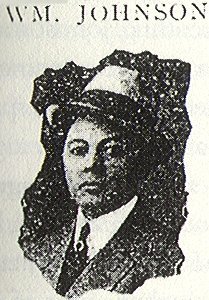
William Manuel "Bill" Johnson was an American jazz musician who played banjo and double bass; he is considered the father of the "slap" style of double bass playing.
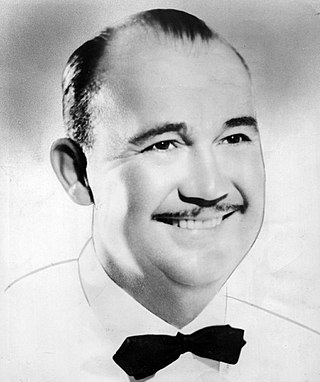
Paul Samuel Whiteman was an American bandleader, composer, orchestral director, and violinist.
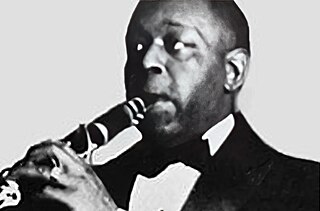
Johnny Dodds was an American jazz clarinetist and alto saxophonist based in New Orleans, best known for his recordings under his own name and with bands such as those of Joe "King" Oliver, Jelly Roll Morton, Lovie Austin and Louis Armstrong. Dodds was the older brother of drummer Warren "Baby" Dodds, one of the first important jazz drummers. They worked together in the New Orleans Bootblacks in 1926. Dodds is an important figure in jazz history. He was the premier clarinetist of his era and, in recognition of his artistic contributions, he was posthumously inducted into the Jazz Hall of Fame. He has been described as "a prime architect in the creation of the Jazz Age."
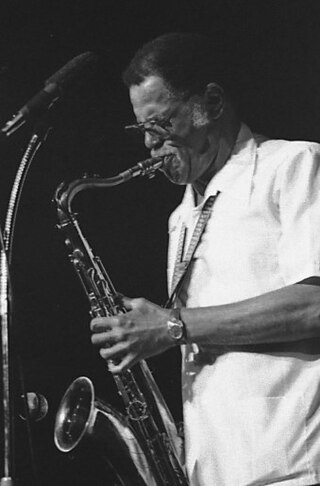
Dexter Gordon was an American jazz tenor saxophonist, composer, and bandleader. He was among the most influential early bebop musicians. Gordon's height was 6 feet 6 inches (198 cm), so he was also known as "Long Tall Dexter" and "Sophisticated Giant". His studio and performance career spanned more than 40 years.

Willie Gary "Bunk" Johnson was an American prominent jazz trumpeter in New Orleans. Johnson gave the year of his birth as 1879, although there is speculation that he may have been younger by as much as a decade. Johnson stated on his 1937 application for Social Security that he was born on December 27, 1889. Many jazz historians believe this date of birth to be the most accurate of the various dates Johnson gave throughout his life.

Emmett Louis Hardy was an American jazz cornet player during the early 1900s.

Tom P. Brown, sometimes known by the nickname Red Brown, was an American dixieland jazz trombonist. He also played string bass professionally.
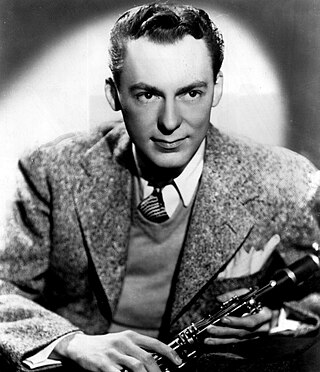
Woodrow Charles Herman was an American jazz clarinetist, saxophonist, singer, and big band leader. Leading groups called "The Herd", Herman came to prominence in the late 1930s and was active until his death in 1987. His bands often played music that was cutting edge and experimental; their recordings received numerous Grammy nominations.

Wallace Foster Davenport was an American jazz trumpeter. Davenport has been one of the few traditional jazz musicians of the 1930s who later branched out into swing and bop styles, as well as backing gospel and R&B vocalists during an extensive career in eight different decades.
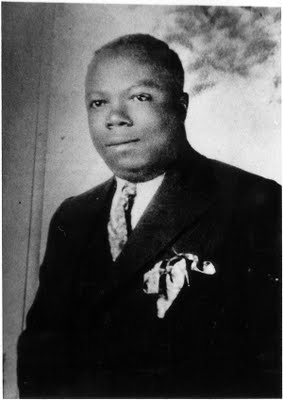
Benjamin Moten was an American jazz pianist and band leader born and raised in Kansas City, Missouri, United States.

Russell Keith Procope was an American clarinetist and alto saxophonist who was a member of the Duke Ellington orchestra.
Edward Raymond Müller known professionally as Eddie Miller, was an American jazz musician who played tenor saxophone and clarinet.
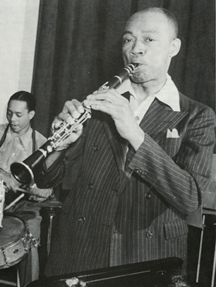
Edmond Hall was an American jazz clarinetist and bandleader. Over his career, Hall worked extensively with many leading performers as both a sideman and bandleader and is possibly best known for the 1941 chamber jazz song "Profoundly Blue".
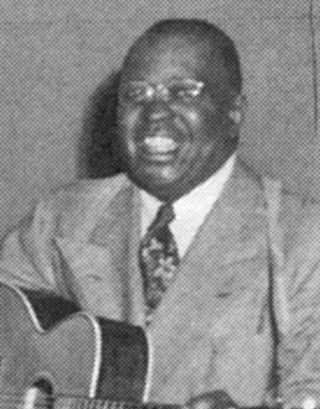
Arthur Budd Scott was an American jazz guitarist, banjoist and singer. He was one of the earliest musicians associated with the New Orleans jazz scene. As a violinist he performed with James Reese Europe's Clef Club Orchestra at a historic 1912 concert at Carnegie Hall, and the following year worked with Europe's ensemble on the first jazz recordings on the Victor label.

Louis Albert Cottrell Jr. was a Louisiana Creole jazz clarinetist and tenor saxophonist. He was the son of the influential drummer Louis Cottrell, Sr., and grandfather of New Orleans jazz drummer Louis Cottrell III. As leader of the Heritage Hall Jazz Band, he performed at Carnegie Hall in 1974.

The history of jazz in Belgium starts with the Dinant instrument maker Adolphe Sax, whose saxophone became part of military bands in New Orleans around 1900 and would develop into the jazz instrument par excellence. From then on the early history of jazz in Belgium virtually runs parallel to developments in the country of the birth of jazz, from the minstrel shows in the late 19th century until the first Belgian jazz album in 1927 and beyond.
Brownlee is an English or Scottish toponymic surname, named after Brownlee, Lanarkshire or Brownley, Warwickshire. Notable people with the surname include:

















